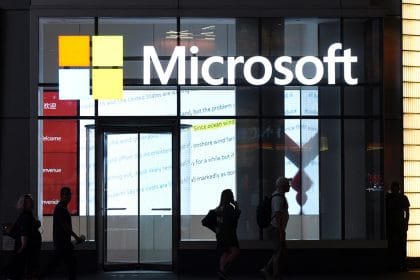The Microsoft research team has figured out a way to leverage the Ethereum blockchain and deploy the Proof-of-leakage to get control over piracy-related matters.
Tech giant Microsoft Corp (NASDAQ: MSFT) has been working around the corner to handle piracy issues for its blockchain network. However, the tech titan is now relying on formidable blockchain platforms like Ethereum.
Microsoft’s research department has recently released a new paper explaining how it aims to tackle piracy issues. Researchers from Alibaba and Carnegie Mellon University also participated in this. These researchers later stumbled upon a blockchain-based incentive system to boost its anti-piracy campaigns.
The research paper carries the title Argus: A Fully Transparent Incentive System for Anti-Piracy Campaigns. Thus, it shows that Microsoft is relying on the transparency aspect of blockchain technology.
Leveraging the Ethereum blockchain network, Argus aims to deliver a trustless incentive mechanism. The focus here is to protect user data from the widespread network of an anonymous population of piracy reporters. The paper further notes:
“We see this as a distributed system problem. In the implementation, we overcome a set of unavoidable obstacles to ensure security despite full transparency.”
We evaluate Argus system from various perspectives of practicality, such as the throughput of system, client latency, gas cost on Ethereum, etc. All protocols of Argus are tested end-to-end,” it adds.
Tapping Into the Proof of Leakage
As noted in the paper, Argus will enable backtracking of pirated content to the source along with a corresponding watermarked algorithm. Dubbed as the “proof-of-leakage” each report of the leaked content will involve an information-hiding procedure.
Thus, it will help the informer to report the same watermarked copy without actually owning it. Furthermore, the system incorporates some incentive-reducing safeguards for preventing the informer from reporting the same leaked content repeatedly. The report notes:
“With the security and practicality of Argus, we hope real-world antipiracy campaigns will be truly effective by shifting to a fully transparent incentive mechanism”.
The researchers have also found a way to deal with the issue of Ethereum network fees. The paper notes that the team optimized several cryptographic operations “so that the cost for piracy reporting is reduced to an equivalent cost of sending about 14 ETH-transfer transactions to run on the public Ethereum network, which would otherwise correspond to thousands of transactions.”
As the global internet user base continues to expand fast, tech companies have been getting more cautious over user data. The blockchain technology serves as a key solution to handle data-related matters with transparency.
The illustrations were provided by Depositphotos.com
next